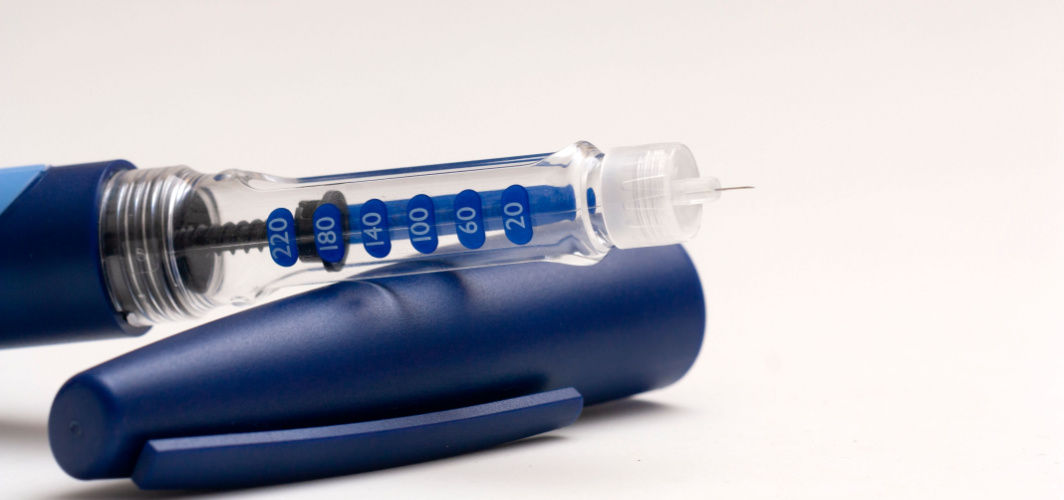Diabetes Management
6 Major Complications Of Diabetes
7 min read
By Apollo 24|7, Published on - 21 June 2023, Updated on - 22 February 2024
Share this article
0
0 like

Did you know that India is the diabetes capital of the world? Moreover, by 2025, the diabetic population in the country is predicted to hit 69.9 million. If not managed well, diabetes (a chronic metabolic disorder characterized by elevated blood sugar levels) can result in severe health consequences. Hence, while managing diabetes is essential, being aware of its possible complications is equally important. Let's look at six major complications that can arise in people with diabetes mellitus.
6 Major Complications of Diabetes Mellitus
There are two types of diabetes complications:
- Acute complications of diabetes mellitus: Diabetic Ketoacidosis (DKA)
- Chronic complications of diabetes mellitus: Cardiovascular disease, Neuropathy, Nephropathy, Retinopathy, Peripheral artery disease
1. Diabetic Ketoacidosis (DKA)
Diabetes ketoacidosis is a potentially life-threatening complication typically affecting individuals with type 1 diabetes. It occurs when there is a severe shortage of insulin in the body, leading to the breakdown of fat to gain energy. This process produces ketones (a type of chemical produced by the liver), which can build up in the blood and cause a dangerous chemical imbalance. Signs and symptoms of DKA include the following:
- Excessive thirst
- Frequent urination
- Fast, rapid breathing
- Flushed face
- Headache
- Fruity-smelling breath
- Nausea and vomiting
Diagnosis:
If you experience one or more above symptoms, you must report it to your doctor. A person diagnosed with DKA, if their:
- Blood sugar levels are above 250 mg/dL
- Blood pH is less than 7.3 (i.e., acidic)
- Blood and urine show ketones bodies
- Serum bicarbonate levels are less than 18 mEq per L
Treatment for DKA:
This condition is usually treated as an emergency and treatment includes:
- Replacing lost fluids and electrolytes
- Insulin administration to help reverse DKA
- Other medications to treat the underlying cause of DKA
- Antibiotics to prevent infections
2. Cardiovascular disease
Diabetes increases the risk of heart disease, like coronary artery disease, heart attacks, and stroke. Elevated blood sugar levels over a long period can damage your blood vessels and contribute to plaque formation. This plaque formation leads to reduced blood flow, thereby increasing cardiovascular risks. The signs and symptoms of the disease depend upon the type of condition.
Diagnosis:
- An ECG or EKG may be done to measure cardiac activity.
- An echocardiogram is performed to check the thickness of the heart muscle and its efficiency to pump blood.
- A stress test (also called a treadmill test) may be performed.
Treatment:
Treatment of cardiac complications in diabetes includes the following:
- Bringing the blood sugar levels within the normal range through medications and lifestyle modifications
- Medications are prescribed based on the condition and its cause
- Following a healthy diet plan
- Maintaining a healthy weight through diet and exercise
- Monitoring blood sugar levels regularly
- Effective stress management by practising meditation and mindfulness
- Practising regular exercise as prescribed by the doctor
3. Diabetic Neuropathy
Diabetes can cause nerve damage, leading to a condition called diabetic neuropathy. This condition primarily affects the nerves in the legs and feet, causing symptoms like the following:
- Tingling
- Numbness
- Pain
- Loss of sensation
This can lead to foot ulcers, infections, and, in some severe cases, amputation could be required as the individual does not realise they have got injured. If you experience one or more of the above symptoms, you must visit your doctor at the earliest.
Diagnosis:
- Physical examination: To check for sensation or open wounds
- Filament testing: Used to check loss of sensation
- Sensory testing: Used to check the response to touch
- Nerve conduction testing: Involves the use of electrical impulses to evaluate nerve damage
- Electromyography: Measures the electrical activity of muscles & nerves
Treatment:
The goal of treating neuropathy is to stop the progression of the condition, relieve patient symptoms, manage complications that may have arisen, and restore function. The treatment plan for neuropathy includes the following:
- Restoring blood sugar levels within the normal limits
- Relieving pain using medications like anti-seizure drugs, & antidepressants
- Treatment of neuropathy-related complications that the individual may develop
- Eating a healthy diet
- Practising regular exercise as recommended by the doctor
4. Diabetic Nephropathy
Diabetes is a leading cause of kidney disease, known as diabetic nephropathy. Elevated blood sugar levels over time can damage the small blood vessels in the kidneys, reducing their ability to filter waste and fluid from the body. This can lead to kidney failure, requiring dialysis or a kidney transplant. The symptoms of diabetic nephropathy include:
- Protein in urine
- Swelling in the feet, ankles, hands
- Increased urge to urinate
- Worsening of blood sugar control
- Shortening of breath
- Loss of appetite
- Nausea and vomiting
- Fatigue
Also read: Diabetes And Stroke: Are They Related?
Diagnosis:
If your doctor suspects nephropathy, they will recommend the following diagnostic tests:
- Urine albumin test
- Albumin: creatinine ratio
- Glomerular Filtration Rate (GFR)
- Imaging tests
- Kidney biopsy in some cases
Treatment:
Treatment for nephropathy usually involves the following:
- Medications (for early-stage nephropathy) to control blood pressure, blood sugar, and cholesterol levels.
- In cases of advanced nephropathy, dialysis and transplant may be required.
Management of nephropathy also involves lifestyle modifications, such as:
- Being physically active for at least 5 days a week
- Eating a healthy, nutritious diet
- Maintaining a healthy weight
- Regular monitoring of blood sugar levels
5. Diabetic Retinopathy
Diabetes can damage the blood vessels in the retina, leading to a condition called diabetic retinopathy. It is a leading cause of blindness among adults. In the early stages, diabetic neuropathy does not cause any symptoms. In the later stages, symptoms may include:
- Blurred vision
- Floaters
- Difficulty in reading or seeing faraway objects
- Complete loss of vision
Diagnosis:
When you report to your doctor with one or more of the above symptoms, they will perform a dilated eye examination to check for diabetic retinopathy.
Treatment:
Treatment for diabetic retinopathy includes:
- Anti-VEGF injections to slow down or reverse retinopathy
- Medications like corticosteroids
- Laser treatment to reduce retinal swelling
- Eye surgery in case of excessive bleeding or scarring
6. Peripheral Artery Disease
Diabetes increases the risk of peripheral artery disease (PAD), a condition characterised by narrowed arteries in the legs and feet. Reduced blood flow to these areas can result in pain, infections, slow wound healing, and, in severe cases, gangrene, which may require amputation. Symptoms of PAD include:
- Coldness in the foot when compared to the other foot
- Numbness or weakness in the foot
- Shiny skin on the affected leg
- Cramping in different parts of the affected limb
- Slower growth of toenails
- Loss of hair on the affected leg
Diagnosis:
While the symptoms are a strong indicator of peripheral artery disease if you have diabetes, your doctor may recommend:
- Blood tests like lipid profile test
- Ankle-brachial pressure index
- Ultrasound for the legs and feet
- Angiography
Treatment:
The treatment for peripheral artery disease includes the management of leg pain and improving arterial health to reduce stroke and heart attacks.
Takeaway
In a nutshell, diabetes mellitus poses several significant complications that can significantly impact a person's health and quality of life. People with diabetes must manage their condition effectively and adopt a proactive approach towards prevention and treatment. By maintaining a healthy lifestyle, monitoring blood sugar levels regularly, adhering to prescribed medications, and seeking medical guidance, you can minimise the risk and severity of these complications. This will lead to better long-term outcomes and improved overall well-being. For more information, consult diabetologists.
FAQs
What are the most common diabetes complications?
Nerve damage or neuropathy is the most common diabetes complication. It can cause tingling and pain in the feet and numbness.
What are the complications of type 1 diabetes?
Complications of type 1 diabetes are similar to those of type 2. It includes heart attack, stroke, atherosclerosis and nerve damage.
Which are the acute complications of type 2 diabetes?
Diabetic ketoacidosis, hyperglycemic hyperosmolar state, lactic acidosis, and hyperglycemia are some acute complications of diabetes mellitus.
What eye complications does diabetes cause?
Diabetes causes diabetic retinopathy or damage to the nerves in the eye, which if left untreated can lead to blindness.
Can diabetes complications be prevented?
Yes. Start by taking your medications on time, following a healthy lifestyle and listening to your doctor's instructions. In this way, you can keep your blood sugar levels within the normal range and prevent diabetes complications.
You can also try the Apollo 24|7 Diabetes Self-Management Tool to log your sugar values, track patterns, know all about food nutrition and more.
Medically reviewed by Dr Sonia Bhatt.
Diabetes Management
Consult Top Diabetologists
View AllLeave Comment
Recommended for you
.jpg?tr=q-80)
Diabetes Management
Adapting Your Diabetic Diet Plan to Suit Lifestyle and Preferences
Understanding the influence of carbohydrates and protein on blood sugar forms the cornerstone of managing diabetes. Various diabetic diet plans can be tailored to personal lifestyles and preferences, with the guidance of a registered dietitian.

Diabetes Management
What are the Factors that Influence Insulin Action?
Insulin action refers to the ability of insulin to regulate blood sugar levels and various metabolic processes in the body. Insulin action is influenced by factors like, your weight, physical activity, diet, hormones, medications, stress, sleep, age and genetics. Insulin sensitivity varies among individuals and can be affected by lifestyle and genetic predispositions. Maintaining a healthy lifestyle through diet, exercise, and stress management is essential for optimal insulin action and metabolic health.

Diabetes Management
Optimal Vegetable Choices for Type 2 Diabetes Management
Managing type 2 diabetes can be made easier with the right dietary choices. Including a variety of low-starch, nutrient-dense vegetables in your diet can aid in blood sugar management, contribute to weight loss, and reduce complications. From broccoli to radish, learn how these common vegetables can be your allies in your diabetes management journey.
Subscribe
Sign up for our free Health Library Daily Newsletter
Get doctor-approved health tips, news, and more.
Visual Stories

8 Fruits That are Incredibly Healthy for Diabetes
Tap to continue exploring
Recommended for you
.jpg?tr=q-80)
Diabetes Management
Adapting Your Diabetic Diet Plan to Suit Lifestyle and Preferences
Understanding the influence of carbohydrates and protein on blood sugar forms the cornerstone of managing diabetes. Various diabetic diet plans can be tailored to personal lifestyles and preferences, with the guidance of a registered dietitian.

Diabetes Management
What are the Factors that Influence Insulin Action?
Insulin action refers to the ability of insulin to regulate blood sugar levels and various metabolic processes in the body. Insulin action is influenced by factors like, your weight, physical activity, diet, hormones, medications, stress, sleep, age and genetics. Insulin sensitivity varies among individuals and can be affected by lifestyle and genetic predispositions. Maintaining a healthy lifestyle through diet, exercise, and stress management is essential for optimal insulin action and metabolic health.

Diabetes Management
Optimal Vegetable Choices for Type 2 Diabetes Management
Managing type 2 diabetes can be made easier with the right dietary choices. Including a variety of low-starch, nutrient-dense vegetables in your diet can aid in blood sugar management, contribute to weight loss, and reduce complications. From broccoli to radish, learn how these common vegetables can be your allies in your diabetes management journey.


